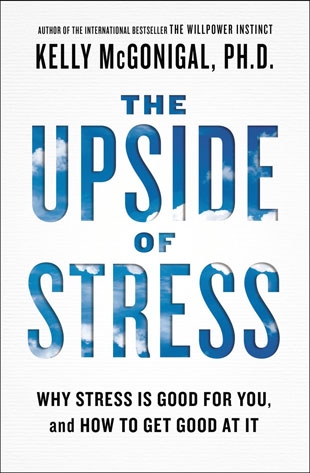"I trust you to pay the most attention to the science and stories that fit your life right now. The same applies to the exercises and strategies in the book. Just as no scientific study applies to all forms of stress, no one strategy for dealing with stress applies to every situation. A strategy that allows you to overcome public-speaking anxiety or better handle family conflict may not be the one that best helps you deal with financial problems or manage grief. I encourage you to choose the methods that seem best suited to your own challenges.
"Whenever I talk about the upside of stress, someone always asks, 'But what about the really bad stress? Does what you're saying still apply?" It's easy for people to see how embracing the small stress — some pressure at work, a little nervousness about a major event — could help. But what about the big stuff? Does the concept of embracing stress apply to trauma, loss, health problems, and chronic stress?
"I can't guarantee that every idea in this book is going to help with every form of stress or suffering. However, I no longer worry that the benefits of embracing stress apply only to the small stuff. To my surprise, embracing stress has helped me the most in the most difficult situations — dealing with the death of a loved one, coping with chronic pain, and even overcoming a paralyzing fear of flying. That's also what I've heard from my students. The stories they share at the end of the course usually aren't about getting better at juggling deadlines or dealing with an irritating neighbor. They are about coming to terms with the loss of a spouse. Facing a lifelong struggle with anxiety. Making peace with a past that includes childhood abuse. Losing a job. Getting through cancer treatment.
"Why would seeing the good in stress help in these circumstances?
"I believe it is because embracing stress changes how you think about yourself and what you can handle. It is not a purely intellectual exercise. Focusing on the upside of stress transforms how you experience it physically and emotionally. It changes how you cope with the challenges in your life. I wrote this book with that specific purpose in mind: to help you discover your own strength, courage, and compassion. Seeing the upside of stress is not about deciding whether stress is either all good or all bad. It's about how choosing to see the good in stress can help you meet the challenges in your life."
